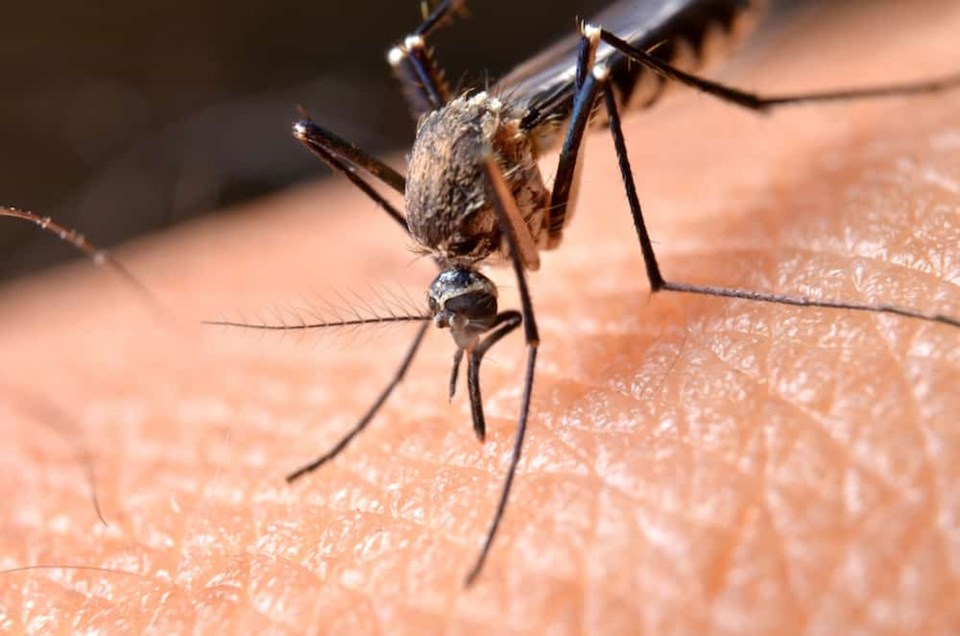Contractor Vector Disease Control International will be spraying for mosquitoes, weather permitting, in four predetermined “hotspot” zones in Longmont on Thursday night.
The spraying will take place at Jim Hamm Park, Union Reservoir, Great Western/Mill Village and Stoney Ridge/ Alpine Elementary, according to a city news release. A map of predetermined spray areas can be viewed at LongmontColorado.gov/westnile.
Spraying takes place when mosquito traps exceed the 150-count threshold and when West Nile virus has been detected in the Longmont area. Boulder County Public Health on Aug. 17 and again on Monday announced that West Nile-positive mosquitoes were found in Longmont, as well as in Lafayette, Louisville and Superior.
The county health department also reported last week that a Boulder resident in their 70s had tested positive for West Nile and was hospitalized with meningitis. That human case of West Nile is one of two in Colorado, according to state data.
Notice of mosquito spraying in the city is posted Tuesdays at LongmontColorado.gov/westnile. Residents also can sign up to be alerted when spraying will take place by using the city’s eNotification subscription page.
Longmont residents can request notifications and shutoffs when spraying is planned near their properties by calling Vector Disease Control at 970-278-9977 or visiting vdci.net/colorado. Three options are available: To receive a call before spraying takes place; to have the spray machine shut off when it passes their property, or to receive notification and have the machine shut off as it passes.
West Nile virus is transmitted to humans from the bite of an infected mosquito. While most infections are mild, more serious infections can cause encephalitis (inflammation of the brain) and/or meningitis (inflammation of the brain's lining), loss of vision, paralysis, coma, tremors, convulsions, and death, according to the county health department. Symptoms of West Nile include fever, extreme fatigue, headache, body aches, and also can include skin rashes and swollen lymph nodes. Boulder County Public Health advised anyone who experiences symptoms to consult their health care provider. Generally, symptoms appear three to 14 days after being bitten by an infected mosquito, according to the county.
There is no treatment, cure or human vaccination for the virus, but symptoms can be treated to help patients feel better and possibly recover more quickly, according to Boulder County Public Health.
While everyone is at risk of being infected with West Nile virus, those older than 50 or with weakened immune systems are at greater risk of developing serious illness, and anyone who experiences symptoms should consult their health care provider, according to the county.
In Colorado, most West Nile virus cases are diagnosed in August and September, and the mosquito season generally extends from late April until mid-October, with the end usually signaled by the first freeze in the fall, the county health department stated.
To further protect them from West Nile virus, Boulder County Public Health officials urge residents to observe the 4Ds:
-
Use DEET-enhanced insect repellent or alternatives, including Bite Blocker, Picaridin, Oil of Lemon Eucalyptus, or IR3535.
-
Dress in long sleeves and pants.
-
Avoid the outdoors from dusk until dawn.
-
Drain standing water outside of homes.



